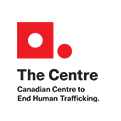Across Canada, coalitions and non-governmental organizations are working to support survivors of human trafficking and increase awareness of this crime. While much of the support and services available to survivors are focused on emergency and crisis intervention, the impact that trafficking has on the financial standing of survivors is not always as obvious and is often overlooked. Unfortunately, financial abuse and coercion while being trafficked for either forced labour or forced commercial sex can pose extreme challenges for an individual as they progress through their recovery.
Although financial abuse is not a new concept, it has typically been associated with crimes like elder abuse or domestic violence. Financial abuse typically occurs between two or more people who often have an existing relationship. In Canada, since human trafficking for the purpose of commercial sexual exploitation is a relational crime – often taking place within a perceived intimate partnership, familial relationship, friendship or employer/employee relationship – it often involves aspects of financial abuse too.
Trafficking is a high-profit, low-risk crime, and financial abuse can frequently be part of the trafficking experience as it is used to maximize the trafficker’s net gain and control over the individual. Traffickers are clever and adaptable. They often go to great lengths to ensure expenses related to the trafficking activity are in the name of the victim, associated with the victim’s credit card or bank account. This is done to keep the trafficker removed from the crime, which in turn makes it difficult for police to investigate, and makes it harder for financial institutions to substantiate the coercion element associated with the victim’s accounts.
When it comes to human trafficking, we typically see two types of financial abuse perpetrated by traffickers, which can have devastating impacts on the financial standing of survivors: coerced debt and identity fraud.
What is Coerced Debt?
Coerced debt is a form of economic abuse affecting all non-consensual, credit-related transactions that occur within an abusive relationship. Coercion does not require the express application of physical force; instead it can be subtle, indirect and psychological in nature. For example, in coercive debt situations, a victim may be threatened, forced or tricked into renting cars, paying for hotels, gas, food, rent, etc. They may be forced to take out personal loans, student loans, open lines of credit, or apply for certain social benefits which are then turned over to the trafficker.
What is Identity Fraud?
Identity fraud, also known as identity theft, happens when someone uses your name without your knowledge to commit acts of fraud and/or other crimes. In human trafficking situations, identity theft often involves a trafficker committing fraud by making unauthorized charges to a victim’s existing accounts, including bank and credit cards, utilities, cell phone accounts, etc. The trafficker might also forge the victim’s signature on new accounts, apply for online loans, credit cards, tax credits or social assistance benefits. There may also be non-consensual use of the victim’s personal information, such as social insurance numbers, bank account numbers, or date of birth. Some cases might involve in-person impersonation of the victim by family members, associates or other victims of the trafficker. Many survivors are unaware of the accumulating debt until they have left the trafficking situation.
Lasting Impacts of Financial Abuse
Many survivors report being trafficked during their formative years. As a result, they can miss out on important financial literacy education and experiences that most of us have when interacting with financial institutions and consumer-lending products like credit cards and personal loans. Sometimes, as a result of the trafficking experience, a young person may find that they have been conditioned to have a different perception and relationship to money than someone who has not been trafficked. Ultimately, trafficking often robs survivors of a healthily financial standing or footprint. It then becomes challenging for survivors to do simple things like rent an apartment, receive a student loan to go back to school, or even secure employment.
